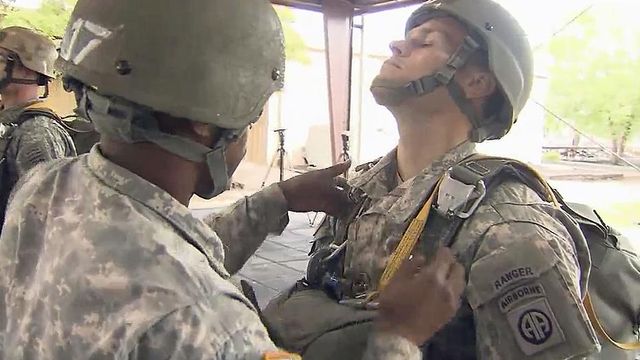Paratroopers review safe exits after two fatalities during training
Jumpmasters with the 18th Airborne returned to the classroom Friday for a refresher on parachute safety following the deaths of two young paratroopers within 10 days of each other.
Posted — UpdatedOn Friday, jumpmasters, the experienced paratroopers who make sure everyone gets in and out safely during airborne operations, reviewed their training. They will return to their units and give refresher classes to their soldiers.
"They can communicate the proper way to do something to their jumpers, making those jumpers understand that if you do something wrong that it could become an issue with your parachute system,” explained Maj. Craig Arnold, the jumpmaster school commander.
Military leaders say serious accidents are extremely rare. Since March of last year, more than 63,000 jumps have been made with three fatalities.
Still, Anderson says one death is too many. That’s why he ordered training suspended until all units complete the safety refresher.
"We do it for motocycles. We do it for automobiles. We do it for weapons. Airborne operations are is more dangerous than all those combined," Anderson said.
• Credits
Copyright 2024 by Capitol Broadcasting Company. All rights reserved. This material may not be published, broadcast, rewritten or redistributed.






